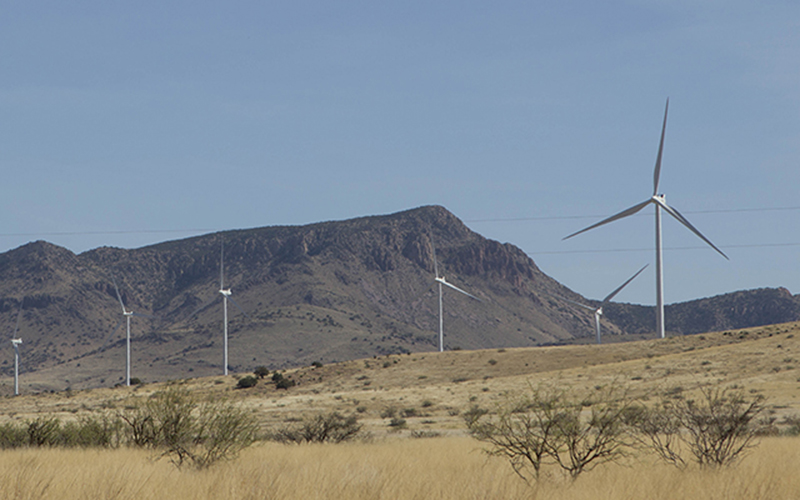PHOENIX – The SunZia power project faces a new objection, this time from an environmental group that fears the high-voltage transmission lines from New Mexico to Arizona will inflict irreparable damage to wetlands and bird populations.
The $2 billion project, proposed in 2008, calls for building two 1,500-megawatt lines running 520 miles from central New Mexico to Eloy to carry wind-generated electricity to Western markets, according to the Albuquerque Journal.
Opponents question how much renewable energy the lines would actually transport, whether wind-power producers using the lines can realistically find markets for up to 3,000 megawatts of electricity, and whether the benefits for New Mexicans are worth the costs.
The project has received licenses and permits in Arizona. But it still needs approvals from the New Mexico Public Regulation Commission, the State Land Office, the Middle Rio Grande Conservancy District and the Army Corps of Engineers.
The U.S. Bureau of Land Management also must approve SunZia’s plan of development for construction, including detailed avian protection and migratory bird-conservation measures along the Rio Grande, before allowing the project to proceed.
High on the list of community concerns is the project’s proposed river crossing at Escondida, near Socorro. Opponents fear it would be a death trap for migratory birds that forage and roost in the area because it would cross a narrow passage between two wildlife refuges – Sevilleta National Wildlife Refuge to the north and Bosque del Apache to the south – said Cecilia Rosacker, executive director of the Rio Grande Agricultural Land Trust.
“That’s some of the last wetlands left in New Mexico, and it’s critical to continental bird migration,” Rosacker said. “We’ve been working 20 years on the local level to protect birds, including endangered species.”
The U.S. Fish and Wildlife Service estimates that 8 million to 57 million birds are killed nationwide every year when they contact electrical lines.
The Bureau of Land Management and Fish and Wildlife did review about a half-dozen proposed crossings south and north of Escondida, including a detailed study at San Antonio, near Bosque del Apache. It concluded that crossing at the narrowest point, near Escondida, would have the least impact.
The Bureau of Land Management is also reviewing the precise location of the river crossing, said Melanie Barnes, the agency’s state director for resources.
That process will include public input, Barnes said.
This story is part of Elemental: Covering Sustainability, a new multimedia collaboration between Cronkite News, Arizona PBS, KJZZ, KPCC, Rocky Mountain PBS and PBS SoCal.
Follow us on Twitter.
